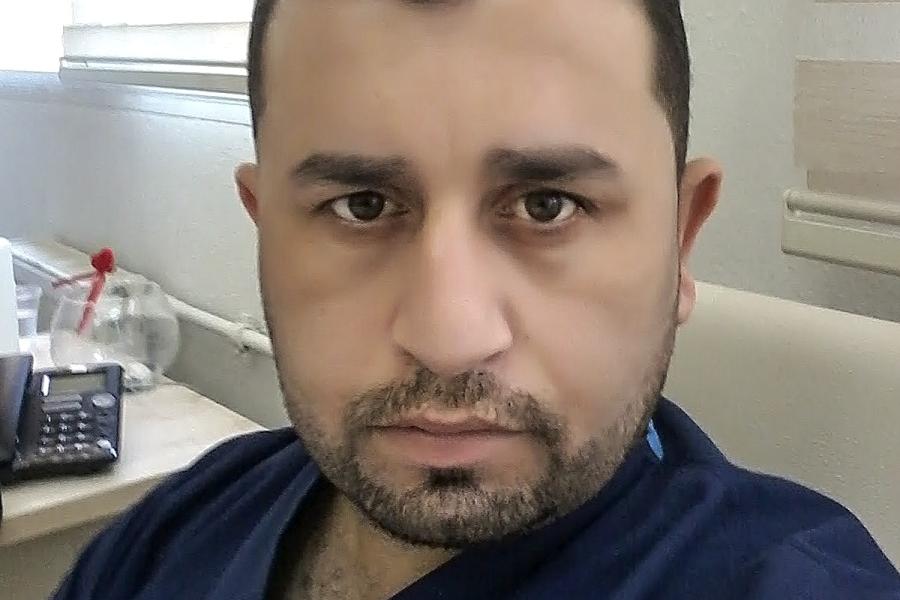Refugee nurse Ahmed Ahmed: working together to prevent COVID-19 infections in Turkey

“During work I did not think about my refugee status, I did not feel separate from the common efforts of the Turkish health system" says Refugee nurse Ahmed.
“I have worked at the Izmir migrant health centre since August 2017 and I feel very happy to be working in a job I have studied for. I graduated from nursing in 2014 in Aleppo, Syria and after working for 6 months in a private hospital, I decided to come to Turkey. Soon after, I joined the EU-funded SIHHAT project, a close collaboration between the Turkish Ministry of Health and WHO, aimed at improving the overall health status of the Syrian population in the country. As part of the project, I received theoretical and practical training from WHO and the Turkish Ministry of Health, to work alongside Turkish doctors at the migrant health centres, which are part of the public health system,” explains Ahmed Ahmed, a refugee nurse from the Syrian Arab Republic.
“To address the health risks caused by COVID-19, I became part of a contact tracing team, helping patients recall everyone whom they had been in close contact with during the time they were infectious. We handled each case with care and precision. I worked side by side with Turkish colleagues towards the common goal of identifying COVID-19 patients, interviewing them in a quick and efficient manner, performing tests, recording data in health information systems, and informing them that they may have been infected.
“During these 2 months, I worked as a nurse but also assisted as a translator when we were interviewing Arabic-speaking patients. If on average an interview took 3 minutes with my mediation, without someone who could communicate with patients in their mother tongue, I believe visits would have taken considerably more time.
“Being able to communicate freely without any language barriers and in a non-judgmental way is of the essence during contact tracing, especially as identifying possibly infected individuals is a time-sensitive matter. The sooner people are identified, the fewer people are at risk.
“It felt rewarding to reach COVID-19 positive individuals in a timely manner, because I know we were actively preventing the spread of the disease within communities, thereby protecting the health of hundreds of people.

"I worked side by side with Turkish colleagues towards the common goal of identifying COVID-19 patients, interviewing them in a quick and efficient manner, performing tests, recording data in health information systems, and informing them that they may have been infected" - Syrian nurse Ahmed Ahmed
“During work I did not think about my refugee status, I did not feel separate from the common efforts of the Turkish health system. I was part of a united team with my Turkish colleagues. We kept each other motivated and encouraged one another to remain in high spirits. I do still miss seeing my colleagues’ smiles at work though, which are now covered by masks and protective equipment.
“Everyone is afraid of the virus, but it is comforting to know which measures work best to protect ourselves. We always discuss this topic among colleagues and friends, and we support one another by sharing the challenges we face and reminding ourselves of the public health recommendations we have to follow.”





